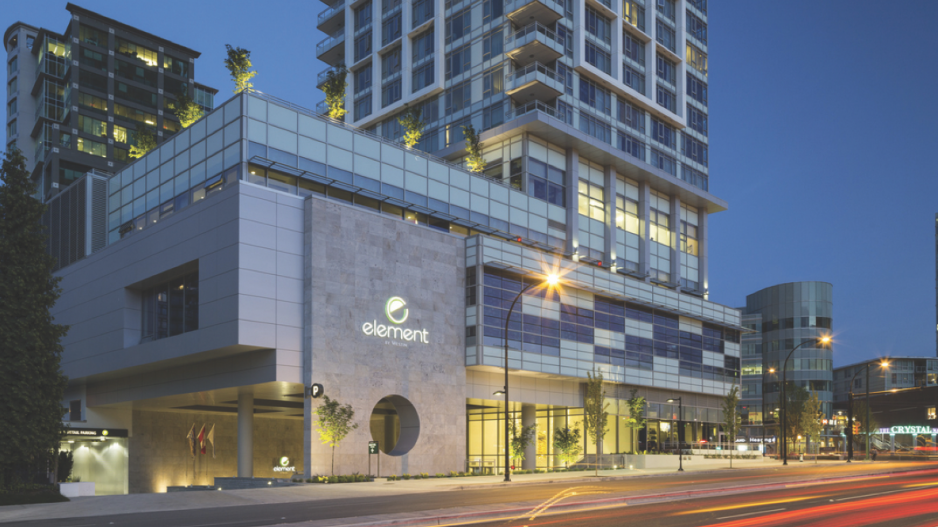Vancouver's tourism sector is booming, but densification pressures and a tight rental supply mean that several downtown hotel properties are being converted to residential properties.
Hong Kong-based Asia Standard International Group hopes to rezone the 357-room Empire Landmark in Vancouver’s West End, potentially removing its rooms from the market. A few blocks away, the Coast Plaza also intends to close and convert its 199 rooms to 316 rental apartments.
Meanwhile, new development sites are in short supply, upping the ante for everyone – and giving the upper hand to residential developers hoping to market proximity to downtown amenities to owners, whether investors or residents.
Tighter regulation of short-term rentals by both the city and strata councils means that few of those units are likely to make up for the loss of hotel rooms.
Owners who do want to enjoy a slice of the city’s tourist market have had to get creative. With existing properties in short supply, the solution lies in converting existing properties or building new – but it’s a tough call.
“Assets would probably, today, be close to fully priced, so we would be looking at options for how we can create value, redevelopment plays, repositions, whatever,” remarked Tyler MacDonald, hotels director for Oxford Properties Group, at the Western Canadian Lodging Conference in Vancouver last month.
Parq Holdings Ltd., a joint venture between Paragon Development Ltd., Dundee Corp. and PBC VUR LP, is going the redevelopment route with its Plaza of Nations casino site, building two new hotels that will add 517 rooms to downtown when they complete next year.
Other hoteliers are competing head-to-head with homebuilders for sites, but Carrie Russell, managing director of valuation and advisory firm HVS Canada in Vancouver, said this can be expensive.
“Vancouver hotel developers literally have to compete with condo developers, and it just does not make very many deals economic,” she said.
Co-operation is often a better approach, and appeals to demanding residential buyers who typically want a hotel lifestyle – urban amenities at their doorstep, including transit access, and proximity to workplaces. Throw in access to hotel facilities, and buyers are often sold – if not for themselves, then for guests or even tenants.
“If you can get a lift to your condo sales because of the hotel component, then that’s an advantage,” Russell said.
Amacon, for example, paired the Loden Hotel with its Melville condo tower in Vancouver, while Pinnacle developed an eponymous hotel with residences at its Pier development in North Vancouver.
“There is a premium if you’re associated with a hotel brand,” Russell said. “The hotel adds some cachet to the other components.”
This was the thinking behind Element, which Bosa Properties Inc. opened last year in the Metrotown neighbourhood of Burnaby as part of its Sovereign development.
“The site is generally cleaner, more secure; there are lots of people around,” said Daryl Simpson, Bosa senior vice-president. “You’ve got the amenities of the hotel to be able to use; you’ve got all the other ancillary retail and restaurants that tend to be located within close proximity to the hotel, which ends up being an amenity for the owners as well.”
While the site was designated for a mix of uses, planning guidelines were flexible regarding specifics.
“The city was requiring an employment-generating use there,” Simpson explained. “We could have built more office – effectively, what the city was looking for originally was office space – but there was a fair glut of office on the market at the time.”
While the inclusion of a hotel complicated cost-sharing with the residential portion of the development, it made sense given the relative shortage of hotels in the area.
“We also believed – and it has proven to be true – that the hotel brand and the presence of a hotel on the property would be accretive to the value of the residential above it,” Simpson said. •




